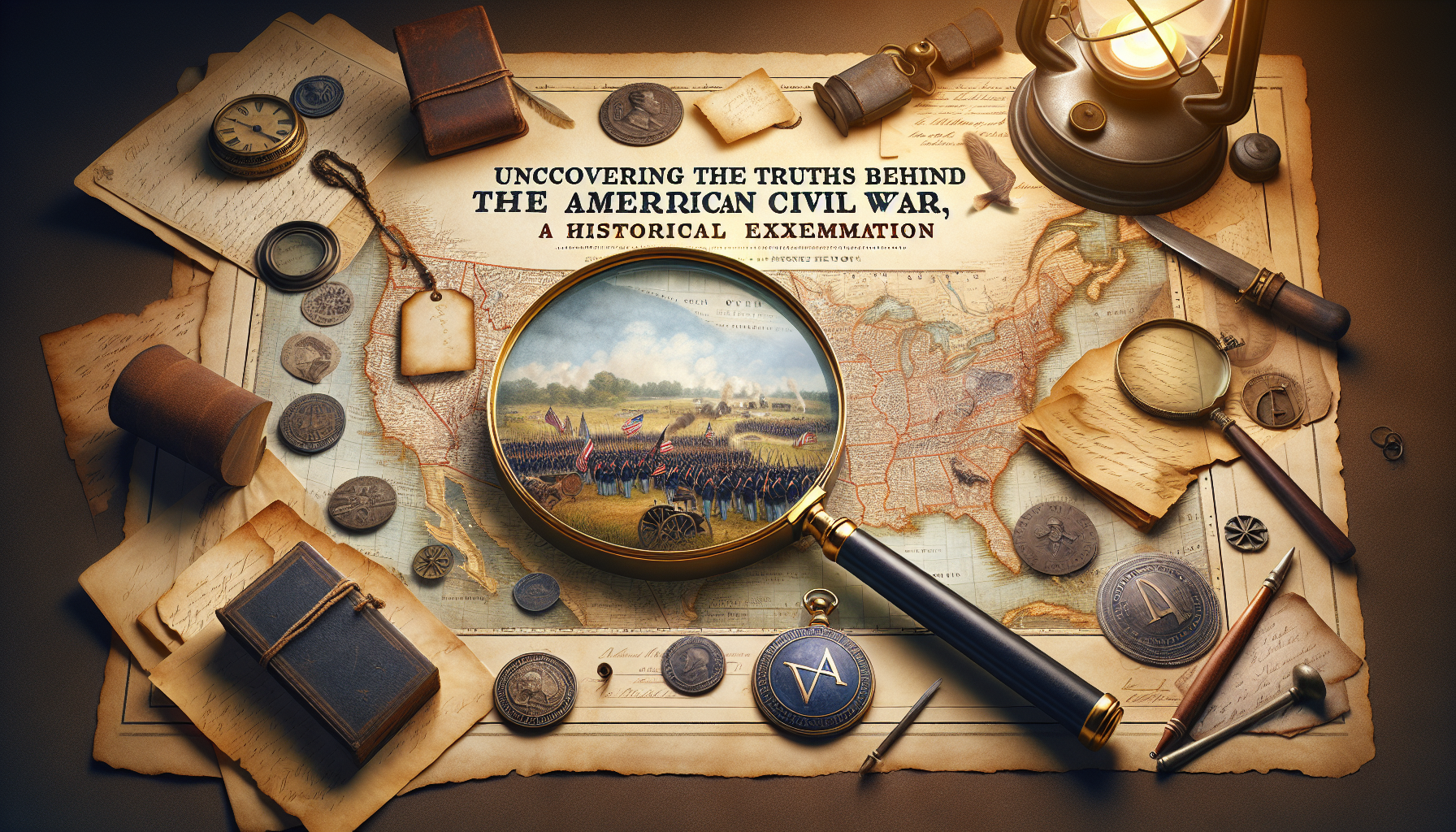Title: Uncovering the Truths Behind the American Civil War: A Historical Examination
The American Civil War, also known as the War Between the States, was a pivotal event in shaping a unified, formidable American nation. Historically, it has been replete with misconceptions and controversies that overshadow the substantive issues that provoked this malevolent conflict. To fully comprehend its complexities and ramifications, one must peel away the fallacies and delve deeper into the truths.
Often reduced to a conflict between the abolitionist North and the slaveholding South, there exists a more intricate tapestry of social, political, and economic factors that contributed to the Civil War. Foremost among contentious issues was the struggle over states’ rights and federal dominance. The Southern states were grasping for the preservation of their sovereignty, fearing federal encroachment on traditionally state-controlled activities, such as taxation, as much as they were reluctantly defending slavery.
Similarly, an exploration of the causative factors of the Civil War would be incomplete without shedding light on the pervasive economic disparities between the industrial North and agrarian South. The North, burgeoning with factories, shipyards, and railroads, was rapidly industrializing, while the South remained largely rural, relying on a labor-intensive plantation system anchored upon slavery. These profound economic differences led to contrasting views on protective tariffs and other policies, further straining the union.
Although slavery was not the solitary factor that ignited the Civil War, its role is omnipresent and undeniable in this historical discord. The institution of slavery was deeply entrenched in the socio-economic fabric of the Southern society, whose wealth and way of life were built upon the labors of slaves. Moreover, the North’s efforts towards the eradication of slavery were seen as an existential threat by the South, triggering deep-seated fears and ultimately leading to secession.
The enactment of the Fugitive Slave Act of 1850, the Kansas-Nebraska Act of 1854, and the Dred Scott decision of 1857 further heightened tensions between the North and South, revealing the immutable dichotomy surrounding the slavery issue. The humanistic dimension of the Civil War propelled it into more than a mere political or economic confrontation; it became a moral struggle over human dignity and freedom.
Another prevailing misconception is the claim that most Southern soldiers were slaveholders fighting to preserve slavery. In truth, most Confederate soldiers did not own slaves but fought for reasons as diverse as regional loyalty, military tradition, protection of family and property, or a simplistic belief in ‘states’ rights.’ On the Northern side, while many Union soldiers initially took up arms to preserve the Union, many became abolitionists as the war progressed, viewing their service as a crusade against the immoral institution of slavery.
Understanding the part that the Union and Confederate leadership roles played in the Civil War is equally essential. President Abraham Lincoln‘s commitment to preserving the Union, not initially ending slavery, guided much of the North’s war strategy. Conversely, the decision-making of the Jefferson Davis-led Confederacy was often disoriented and fractional, exacerbating the South’s problems.
The Civil War brought to fruition the emancipation of four million African American slaves, fundamentally altering the socio-political landscape of America. Hence, the War’s historical discourse remains inseparable from racial issues, reinforcing the need for honest conversations about slavery and racism‘s enduring legacies in contemporary America.
Historical events are often complex, multifaceted phenomena that cannot be fully grasped without thorough analysis of their various components. Therefore, the American Civil War should not be reduced to a struggle between slavery and freedom but recognized as being driven by a complex interplay of regional, economic, political, and moral factors.
By accurately examining the Civil War, we not only come to appreciate its profound effects on American society and values, but we also attain a more comprehensive understanding of our current nation’s challenges and the traces that history leaves behind. As the famous adage goes, “Those who do not learn history are doomed to repeat it.” Hence, the truths behind the American Civil War should serve as a lesson and a cautionary tale for subsequent generations.
Related content
- Exploring the Evolution of Feminism: A Historical Retrospective
- World War II: A Comprehensive Historical Retrospective
- Review: Good Boys (2019) – A Hilariously Profane Journey of Adolescent Curiosity
- A Cinematic Odyssey: A Review of The Irishman (2019)
- A Look Back at the Industrial Revolution: A Historical Retrospective







